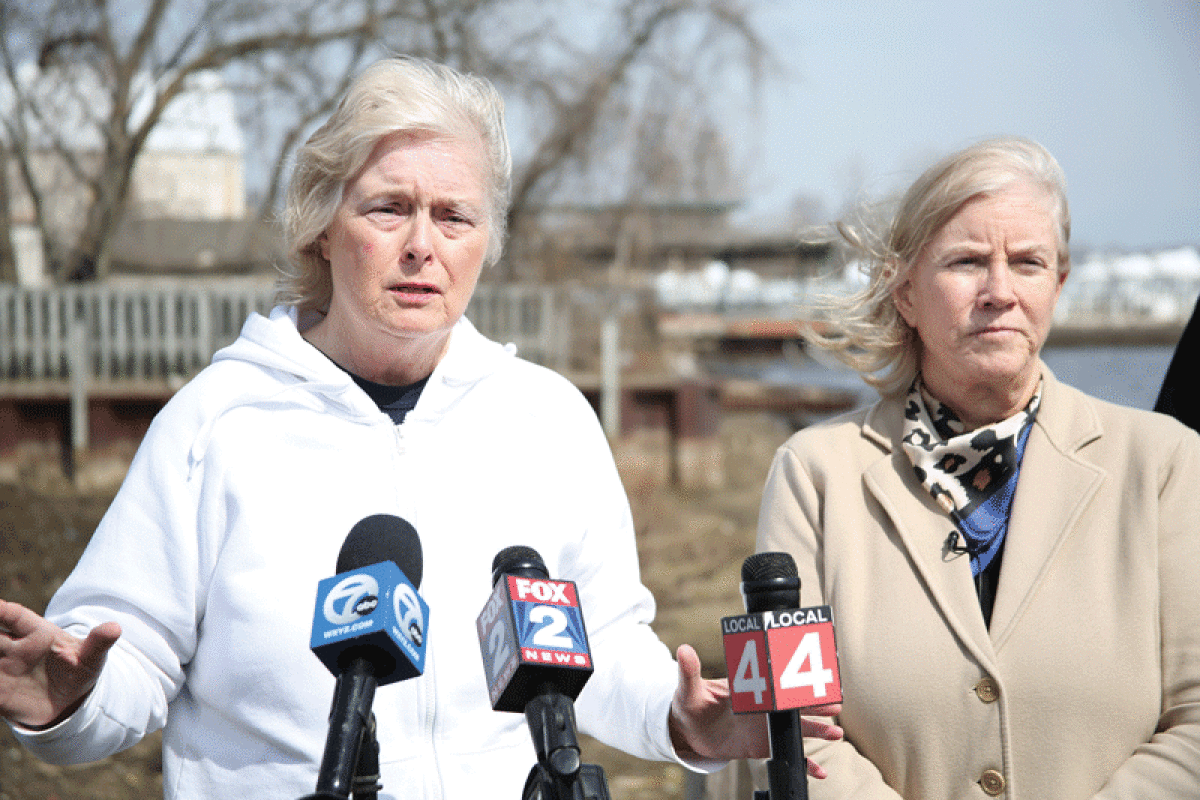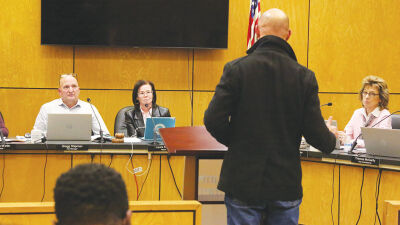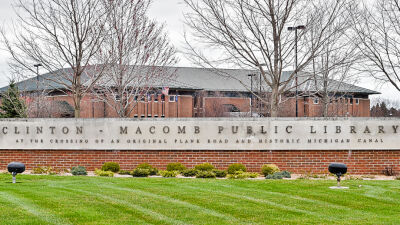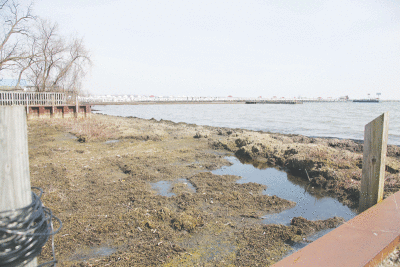
The Michigan Department of Natural Resources had to close the boat launch in Harrison Township for repairs and reconfiguration due to algae growths.
Photo by Dean Vaglia
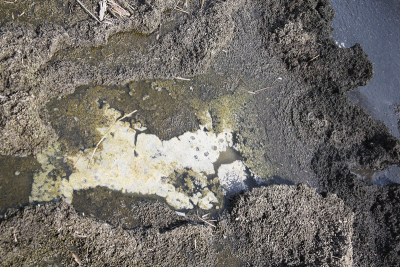
This is a close-up view of a Lyngbya mat at the state boat launch in Harrison Township.
Photo by Dean Vaglia
HARRISON TOWNSHIP — Green, stinky and ruining whatever it touches: That has been the calling card of the algae terror of Lake St. Clair, known so far only as Lyngbya.
The lake muck showed up around 10 years ago and has plagued communities from Harrison Township to St. Clair Shores ever since.
“Lifestyles have changed because of this,” Macomb County Commissioner Barbara Zinner said. “People come here for the water, they love the water, and you can be 200 feet out and the Lyngbya has changed their lifestyle.
“It is taking over our lake. It’s taking over our lives,” Zinner added.
Soon, it might be the muck that needs to change.
The Macomb County Department of Public Works has entered into a partnership with the U.S. Army Corps of Engineers to study Lyngbya. Taking place over two years, the study will consist of taking field samples of Lyngbya, identifying and studying Lyngbya hotspots around Lake St. Clair, and developing a management plan to control the spread and growth of the algae. The partnership will cost $400,000 over the two years, with the Macomb County Board of Commissioners committing half of the funds as part of a recent allocation to the Lake St. Clair Clean Water Initiative drainage board.
Despite being in the lake for a decade, county and local officials have been unable to determine exactly what Lyngbya is and the risks it could pose for wildlife, infrastructure and people living along and interacting with the river. Results and preliminary findings from the partnership will be shared so all stakeholders can learn what researchers do about the algae and its effects.
“What’s causing it? Is it climate change? Is it the zebra mussels?” Miller said. “Is it combined sewer overflows that are coming down the Clinton River or the spillways feeding this organically? We really don’t know.”
The true cost of Lyngbya has been seen through lower property values, expanding shorelines and smellier summers by the water. One major cost was the closure and reconfiguration of the Clinton River Cut-Off Boat Launch in Harrison Township. So much Lyngbya formed where the launch ramp was that the Michigan Department of Natural Resources closed the site in 2022 to build a new launch ramp.
A statement from the county mentions the concerns that officials have about the toxicity of organisms caught in Lyngbya mats, though Miller does not believe Lyngbya itself is toxic to humans.
As things stand, there is little that governments, businesses or lakeside residents can do about the Lyngbya mats. Harrison Township Supervisor Ken Verkest said residents have been able to move the algae, but none of the solutions have been long-term or solved the problem of Lyngbya growth.
“We’ve heard of anything from paying a company to dredge it and haul it away (and) I’ve talked to a resident that said he took a 14-foot aluminum boat with an outboard, chucked a couple of rakes with ropes tied to it into the whole mat and then just dragged it out into the lake, but (that’s) obviously not a sustainable solution,” Verkest said.
Verkest was excited by the partnership and stated Miller’s role as public works commissioner is a big factor in its formation.
“This is just an example of how important it is to have solid representation,” Verkest said.
 Publication select ▼
Publication select ▼